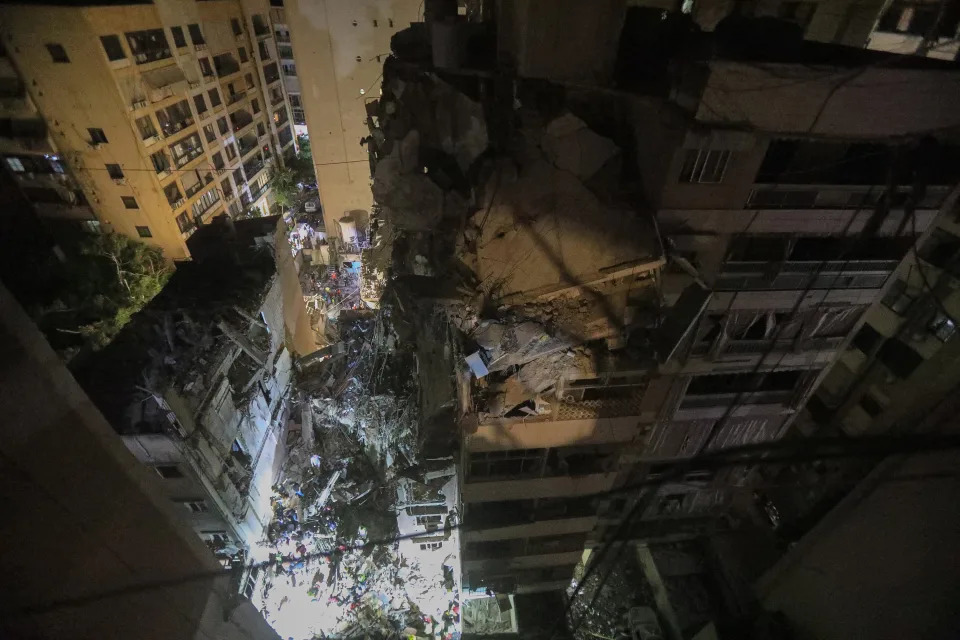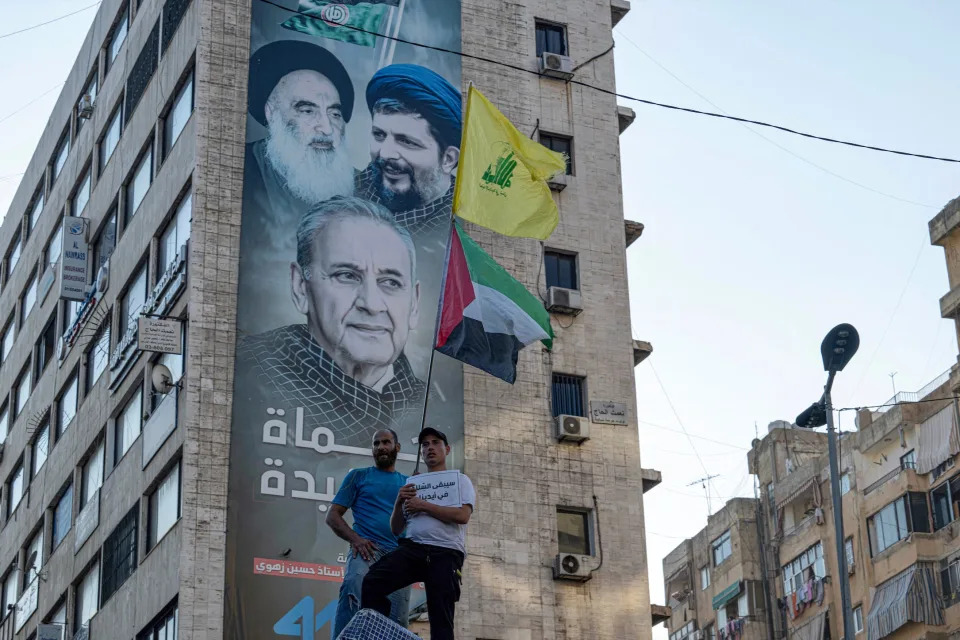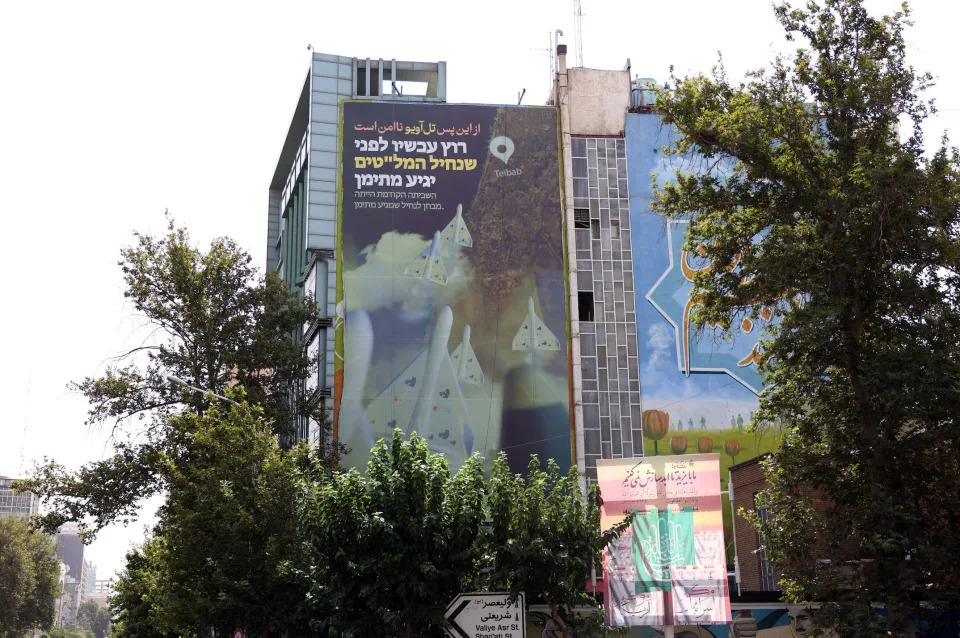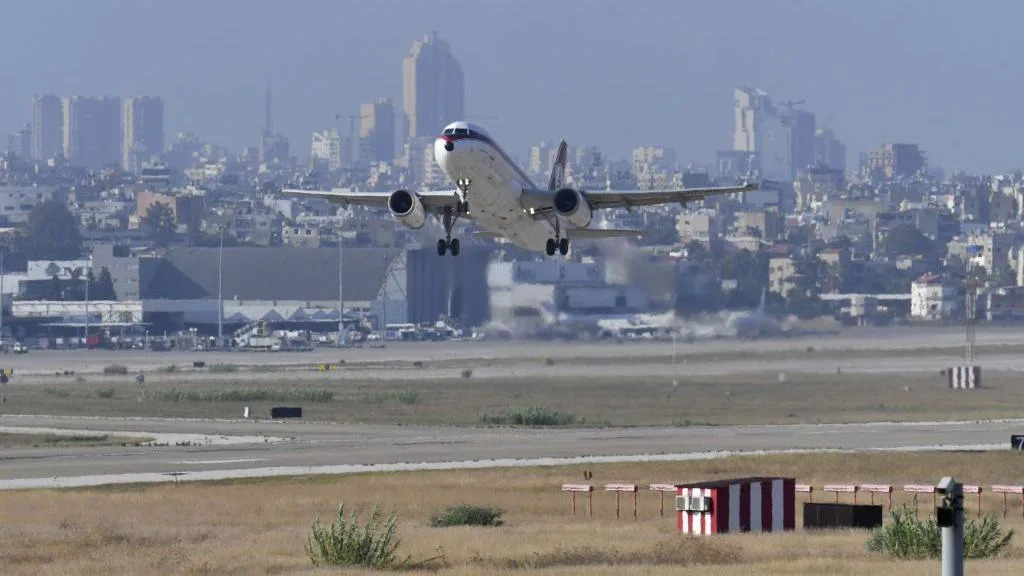-
Israel appeared to carry out two significant assassinations this week in Lebanon and Iran.
-
IDF jets killed a Hezbollah commander in Lebanon shortly before a Hamas leader was blown up in Iran.
-
The shocking incidents mark two intelligence victories for Israel.
Israel claimed responsibility earlier this week for a deadly strike that killed a top Hezbollah commander in Lebanon, and just hours later, it became the leading suspect in a sophisticated scheme that assassinated Hamas' political chief in Iran.
The stunning, back-to-back killings mark two significant intelligence successes for Israel, and demonstrate its ability to secretly track its enemies and strike them with cold precision, Middle East security and counterterrorism experts told Business Insider.
But the strategic repercussions of these strikes remain to be seen, as the dual assassinations have also sparked fears of large-scale retaliation from Iran and its proxies, like Hezbollah and Hamas, which could kill more Israelis and plunge the region into even more conflict.
A strike in Lebanon
On Tuesday, Israeli fighter jets carried out a strike in the Lebanese capital of Beirut, killing Hezbollah commander Fuad Shukr.

Shukr served on Hezbollah's Jihad Council, its highest military body, and was a senior advisor to the group's secretary-general, Hasan Nasrallah. The US government also held him responsible for the 1983 bombing of the US Marine Corps barracks in Beirut and had placed a $5 million bounty on his head.
The Israel Defense Forces blamed Shukr for a deadly rocket attack in the Israeli-controlled Golan Heights that took place just days prior and said it killed him in retaliation.
Jonathan Lord, formerly a political military analyst at the Pentagon, said the operation to kill Shukr was likely informed by combat intelligence. Israel found where he was at a specific time and took the shot when it had the opportunity.
"Their ability to track these individuals in fairly real time, find out where they are, where they're going to be, and then to be able to launch a surgical strike against them — it's an impressive capability," said Lord, the director of the Middle East security program at the Center for a New American Security think tank.

Bruce Hoffman, a counterterrorism expert at the Council on Foreign Relations, said the Beirut strike demonstrated precision targeting that left minimal collateral damage; three other people were reportedly killed, including two children.
'Reputation is everything'
Hours following the Beirut strike, a more seismic incident occurred: Ismail Haniyeh, the leader of Hamas' political wing, was killed in Iran shortly after he attended the swearing-in of its new president, Masoud Pezeshkian.
The circumstances surrounding Haniyeh's death were initially unclear, and it was first thought that he died from an airstrike. However, The New York Times reported on Thursday that he was killed by an explosive device that had been smuggled months ago into the guesthouse where he was staying in Tehran and remotely detonated once it was clear Haniyeh was in the room.
Iran and Hamas blamed Israel for Haniyeh's assassination and promised revenge.

Israel has not publicly acknowledged its involvement, but Israeli officials — including the leader of the country's vaunted Mossad intelligence agency — have vowed to hunt down Hamas leaders responsible for the October 7 massacre wherever they are.
The Mossad has a long history of carrying out Israeli assassination operations outside the country. Axios later reported that it was Mossad agents who planted the explosive device in the Tehran guesthouse, which is run by Iran's Islamic Revolutionary Guards Corps, and detonated it from Iranian soil.
"Astonishingly, Israel had the assets and the capability to gain access to what should have been one of the most highly defended and secured targets in Iran," Hoffman said.
Adding to the significant announcements this week, Israel on Thursday said it killed Mohammed Deif, the commander of Hamas' military wing, in a mid-July strike in Gaza. Hamas did not immediately confirm his death in the strike, which reportedly killed dozens of Palestinians.

Yoav Gallant, Israel's defense minister, said Thursday that "the operation was conducted precisely and professionally" by the IDF and Israeli security forces.
Lord, the former Pentagon analyst, said tactical intelligence is "definitely a strong suit of the Israelis," but he stressed that this must be weighed against some of the apparent breakdowns that the country's elite intelligence community faced leading up to the October 7 attacks.
Israel's political, intelligence, and security apparatuses came under immense scrutiny following the deadly massacre as the public tried to make sense of how the worst breach of the country's defenses since the 1973 Yom Kippur War could occur.
Top officials missed and ignored several warnings that Hamas was preparing a major attack, believing such an event couldn't happen and failed to respond to signs of an imminent attack. In April, Israel's military intelligence chief resigned and said his directorate "did not live up to the task we were entrusted with."
Hoffman said Israel's recent string of targeted killings is its attempt to reestablish the dominant reputation of its intelligence community and restore its deterrent capability so it can make good on future threats and appear stronger in the face of regional adversaries like Iran.
"Israel understands that reputation is everything in the Middle East," Hoffman said. "So gaining that back with this particular series of assassinations was absolutely pivotal."
AfriPrime App link: FREE to download...
https://www.amazon.com/Africircle-AfriPrime/dp/B0D2M3F2JT
Fears of Middle East war grow after Hamas leader's killing
Middle East tensions soared Saturday as Iran and its allies readied their response to the assassination of Hamas's political leader, blamed on Israel, spurring fears of a regional war.
Israel ally the United States said it would move warships and fighter jets to the region, while Western governments have called on their citizens to leave Lebanon -- where the powerful Iran-backed Hezbollah movement is based -- and airlines cancelled flights.
The killing earlier this week of Hamas leader Ismail Haniyeh in Tehran, hours after the Israeli assassination of Hezbollah's military chief in Beirut, has triggered vows of vengeance from Iran and the so-called "axis of resistance".
Iran-backed groups from Lebanon, Yemen, Iraq and Syria have already been drawn into the nearly 10-month war between Israel and Palestinian militant group Hamas.
Israel on Saturday again traded fire with Hezbollah, carried out a deadly raid in the occupied West Bank, and struck a school compound in Gaza City in an attack that the Hamas-ruled territory's civil defence agency said killed at least 10 people.
Numerous schools turned displacement shelters have been hit across Gaza in recent weeks, with Israel saying the facilities had been used by militants. Hamas denied using civilian infrastructure for military activities.
Haniyeh was buried on Friday in Qatar, where he had been based. Israel, accused by Hamas, Iran and others of the attack, has not directly commented on it.
Iran said on Saturday it expects Hezbollah to hit deeper inside Israel and to no longer be confined to military targets.
With such talk growing, the Pentagon said it was bolstering its military presence in the Middle East to protect US personnel and defend Israel.
An aircraft carrier strike group led by the USS Abraham Lincoln will replace one led by the USS Theodore Roosevelt, the Pentagon said.
Defence Secretary Lloyd Austin also ordered additional ballistic missile defence-capable cruisers and destroyers to the Middle East and areas under United States European Command, as well as a new fighter squadron to the Middle East.
In Beirut, 20-year-old student Diana Abu Aasel told AFP she feared "something bad will happen to my family and friends".
"If there is war, I don't think I will be able to bear staying" in Lebanon, she said.
- 'Rapid' escalation -
The killing of Haniyeh, who went to Tehran for the swearing-in of President Masoud Pezeshkian on Tuesday, is among a series of attacks since April that had already heightened fears of a regional conflagration.
His death came hours after Israel struck south Beirut, killing Hezbollah military commander Fuad Shukr.
Britain urged its citizens in Lebanon on Saturday to leave immediately, with Foreign Secretary David Lammy saying: "Tensions are high, and the situation could deteriorate rapidly."
The US embassy in Lebanon told Americans to leave on "any ticket available to them, even if that flight... does not follow their first-choice route".
Sweden said it was shutting its embassy in Beirut and urged its nationals to leave the country "while they still can".
Israeli Defence Minister Yoav Gallant called on Friday for an international coalition to support "Israel's defence against Iran and its proxies", his office said.
Israel has vowed to destroy Hamas in retaliation for its October 7 attack which triggered war in Gaza and resulted in the deaths of 1,197 people, mostly civilians, according to an AFP tally based on Israeli official figures.
Militants also seized 251 hostages, 111 of whom are still held captive in Gaza, including 39 the military says are dead.
Israel's campaign against Hamas has killed at least 39,550 people in Gaza, according to the territory's health ministry, which does not give details of civilian and militant deaths.
- Disease spreading in Gaza -
Haniyeh was Hamas's lead negotiator in efforts to end the war in Gaza. His killing raised questions about the continued viability of month-old efforts by Qatari, Egyptian and US mediators to broker a truce and exchange of hostages and prisoners.
Hamas officials but also some analysts, and protesters in Israel, have accused Netanyahu of prolonging the war to safeguard his ruling hard-right coalition.
Violence has also surged in the Israeli-occupied West Bank, where on Saturday Palestinian official sources said two Israeli air strikes killed nine people in the north of the territory.
The military said it had "eliminated terrorist cells".
The war in Gaza has caused widespread destruction and displaced almost the entire population of the territory where, the UN said on Friday, public health conditions "continue to deteriorate".
It said nearly 40,000 cases of Hepatitis A, spread by contaminated food and water, have been reported since the war began.
Hezbollah has been exchanging near-daily cross-border fire with Israeli forces since October, saying it is acting in support of Hamas.
The military said at least one rocket hit northern Israel on Saturday, and Israeli forces struck targets in south Lebanon.
Hezbollah announced the death of one of its fighters, also claiming several attacks on Israeli army positions.
Late on Friday, a source close to Hezbollah said Israel carried out strikes on a convoy of trucks entering Lebanon from Syria.
Several airlines have suspended flights to Beirut and Tel Aviv.
Flights to Beirut by Air France and low-cost carrier Transavia France will remain halted until at least Tuesday, their parent company said on Saturday.
AfriPrime App link: FREE to download...
https://www.amazon.com/Africircle-AfriPrime/dp/B0D2M3F2JT
Countries urge nationals to leave Lebanon as Mid-East war fears grow
The US has urged its citizens to leave Lebanon on “any ticket available”, as fears grow that war in the Middle East may spread.
The UK, Sweden, France, Canada and Jordan have issued a similar warning.
Iran has vowed “severe” retaliation against Israel, which it blames for the death of Hamas chief Ismail Haniyeh in Tehran on Wednesday. His assassination came hours after Israel killed Hezbollah commander Fuad Shukr in Beirut.
It is feared that Lebanon-based Hezbollah, an Iran-backed group, could play a heavy role in any such retaliation, which in turn could spark a serious Israeli response.
Hezbollah launched dozens of rockets at the town of Beit Hillel in northern Israel at around 00:25 local time on Sunday (21:25 GMT Saturday) .
Footage posted on social media showed Israel's Iron Dome air defence system intercepting the rockets. There have been no reports of casualties.
Israel’s air force responded by striking targets in southern Lebanon.
On Sunday morning, two people were killed in a stabbing attack in the Israeli city of Holon. The attacker was later “neutralised”, police said.
The US embassy stated on Saturday that those who choose to stay in Lebanon should “prepare contingency plans” and be prepared to “shelter in place for an extended period of time”.
It said that several airlines have suspended and cancelled flights, and many have sold out, but “commercial transportation options to leave Lebanon remain available".
The Pentagon said it was deploying additional warships and fighter jets to the region to help defend Israel from possible attacks by Iran and its proxies.
The UK said it was sending extra military personnel, consular staff and border force officials to help with any evacuations - but urged UK citizens to leave Lebanon “while commercial flights are running".
Two British military ships are already in the region and the Royal Air Force has put transport helicopters on standby.
UK Foreign Secretary David Lammy has said the regional situation “could deteriorate rapidly”.
Meanwhile in Gaza, at least 17 people in a school sheltering displaced persons were killed by an Israeli strike, the Hamas-run authorities said on Saturday.
The Israeli military says the Hamama school in Gaza City's Sheikh Radwan neighbourhood was being used as a command centre for militants. Hamas has denied it operates from civilian facilities.
Israeli ministers were sent home this weekend with satellite phones in case of an attack on the country's communication infrastructure.
In April, Iran launched an air attack on Israel using 170 drones, 30 cruise missiles and at least 110 ballistic missiles.
That was in retaliation for the Israeli bombing of an Iranian consulate in Damascus, Syria.
Many fear Iran’s retaliation on this occasion could take a similar form.
In a phone call with EU Foreign Policy Chief Josep Borrell on Friday, Iran's Acting Foreign Minister Ali Baqeri Kani said Iran would "undoubtedly use its inherent and legitimate right" to "punish" Israel.
On Friday, an announcer on Iran's state TV warned "the world would witness extraordinary scenes".
Israeli Prime Minister Benjamin Netanyahu has warned Israelis that "challenging days lie ahead... We have heard threats from all sides. We are prepared for any scenario".
Tensions between Israel and Iran initially escalated with the killing of 12 children and teenagers in a strike on the Israeli-occupied Golan Heights.
Israel accused Hezbollah and vowed “severe” retaliation, though Hezbollah denied it was involved.
Days later, senior Hezbollah commander Fuad Shukr was killed in a targeted Israeli air strike in Beirut. Four others, including two children, were also killed.
Hours after that, Hamas chief Ismail Haniyeh was assassinated in Iran, Hamas's main backer. He was visiting to attend the inauguration of Iran's new president, Masoud Pezeshkian.
Iran's Supreme Leader, Ayatollah Ali Khamenei, has said Israel will suffer a “harsh punishment” for the killing.
AfriPrime App link: FREE to download...



